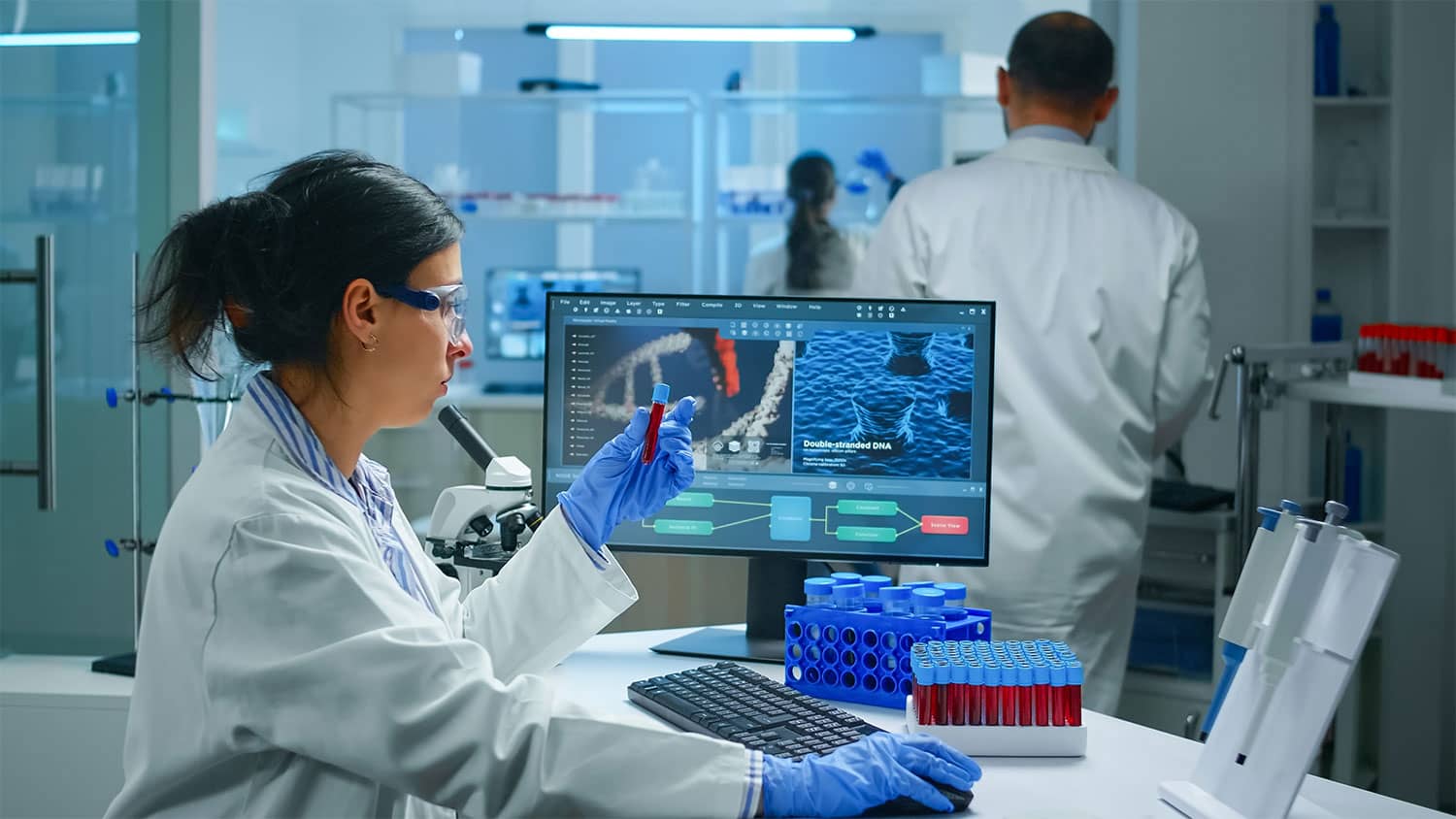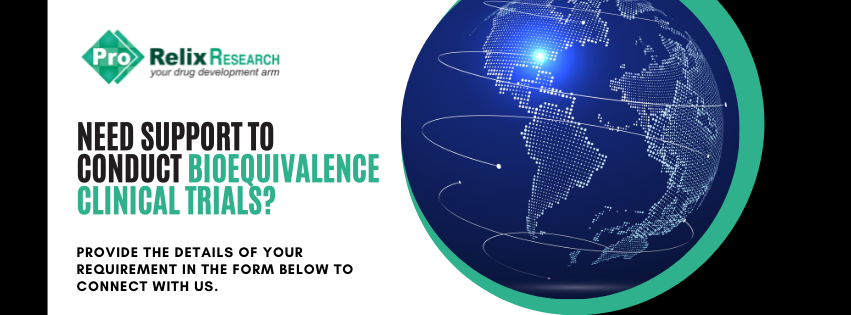The success of a generic drug or biosimilar often hinges on the results of bioequivalence studies making it essential to partner with an experienced and reliable CRO to design and conduct bioequivalence studies. ProRelix Research offers full range service for bioequivalence trials for a wide range of dosage forms from protocol development to statistical data analysis. Our team of experts is well-versed in all aspects of trial management and ensuring adherence to regulatory guidelines to achieve product approval.
The rising prevalence of generic drugs globally has made it imperative to understand the types of studies needed to support generic drug applications to the Food and Drug Administration (FDA) and other regulatory bodies. An estimated 9 of 10 prescriptions filled in the United States are for generic drugs. India is the largest producer of generics in the world and contributes to 40% of US generics’ demand. The US FDA defines a generic drug as “a medication created to be same as an already marketed brand-name drug in dosage form, safety, strength, route of administration, quality, performance characteristics, and intended use.” Generic drugs often differ from the innovator drug in terms of excipients and although small differences between the generic and innovator products are permitted by regulatory bodies, it is important that the differences are not clinically significant. Thus, approval and ultimately commercial success of generics is based on demonstrating ‘equivalence’ or ‘similarity’ between generics and innovator drugs or reference listed drug (RLD).
As preclinical and clinical trial data for the drug is available from the innovator, approval of generics is based primarily on the demonstration of bioequivalence with innovator product by most regulatory bodies such as the FDA, European Medicines Agency (EMA) and the Central Drug Standards and Control Organization (CDSCO) in India. Bioequivalence refers to the absence of significant difference in the rate and extent of absorption of the active ingredient that reaches the systemic circulation or bioavailability. It is assumed that if the two products are pharmaceutically equivalent and bioequivalent, they will be therapeutically equivalent and can be used interchangeably. The review and approval of a generic product involves submission of an abbreviated new drug application (ANDA) to the FDA of which bioequivalence studies are a critical component.
As preclinical and clinical trial data for the drug is available from the innovator, approval of generics is based primarily on the demonstration of bioequivalence with innovator product by most regulatory bodies such as the FDA, European Medicines Agency (EMA) and the Central Drug Standards and Control Organization (CDSCO) in India. Bioequivalence refers to the absence of significant difference in the rate and extent of absorption of the active ingredient that reaches the systemic circulation or bioavailability. It is assumed that if the two products are pharmaceutically equivalent and bioequivalent, they will be therapeutically equivalent and can be used interchangeably. The review and approval of a generic product involves submission of an abbreviated new drug application (ANDA) to the FDA of which bioequivalence studies are a critical component.

In addition to generics, innovator medicines may also require demonstration of bioequivalence between early and late-stage clinical trial formulations, between formulations used in clinical trials and the product to be marketed, and changes in excipients following approval of the innovator. In addition to demonstration of bioequivalence by generics, biosimilars approval also requires demonstration of bioequivalence with a reference biological product. Biosimilars are biological products that are highly similar to and have no clinically meaningful differences from approved reference products. Unlike generics, biosimilar approval requires more extensive preclinical and clinical studies as biologics are large, complex molecules. Clinical studies to assess similarity between the pharmacokinetic and pharmacodynamic profiles between the biosimilar and reference product is necessary for approval.
In bioequivalence studies, the plasma concentration-time curve is used to assess the rate and extent of absorption and pharmacokinetic parameters such as area under the curve (AUC), maximum plasma concentration (Cmax), and time to maximum plasma concentration (tmax) and prespecified acceptance limits are used to assess bioequivalence. Additional ways to establish bioequivalence include in vitro tests predictive of human in vivo bioavailability (in vitro-in vivo correlation IVIVC), pharmacodynamic (PD), clinical endpoint, and in vitro studies.
With increasing competition between pharmaceutical companies to launch their generics in the market, it is important to have experts to guide you through your bioequivalence studies to enable timely launch of your generic product. Our team at ProRelix research can help with clinical studies to demonstrate bioequivalence for both small molecules and biologics. We are well-versed with bioequivalence studies for solid oral dosage forms, parenteral formulations, topical products, inhalation products, and rectal and vaginal systems.

Our services include
- Design of study: sample size, fasting or fed conditions, inclusion/exclusion criteria, sampling schedule, dosage strength selection, choice of reference product
- Writing services: protocols, informed consent documents, case report forms, investigator’s brochure, clinical study reports
- Ethics committee approval
- Study site selection and qualification
- Bioanalytical testing site selection and qualification
- Validation of analytical methods for drug or metabolite
- Clinical monitoring
- Site personnel training on Standard Operating Procedures (SOP), Good Clinical Practice (GCP) and Good Laboratory Practice (GLP) guidelines
- Statistical analysis of pharmacokinetic parameters and interpretation for demonstration of equivalence, preparation of statistical analysis reports (SAR), handling of dropouts
- Handling and reporting of protocol deviations
- Adverse event reporting and safety monitoring
Need Support to Conduct your Bioequivalence Clinical Trials?
We’d be delighted to assist you in conducting your Bioequivalence Clinical Trials
Connect with our experienced staff today!!
Provide details of your requirements by clicking on the given link below and our professional team of clinical research experts will get in touch with you right away.




